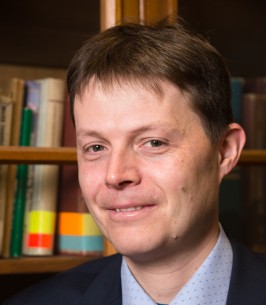Speaker

Session I
Prof. Frederik Ronsse
Department of Green Chemistry and Technology, Ghent University, Belgium
[Session 1-3] Thermochemical Conversion of Marine Waste Biomass Towards Renewable Fuels and Chemicals
Abstract
Thermochemical conversion entails all techniques in which high temperature is employed to convert biomass (residues) into bio-oil, biochar and syngas –major techniques are fast pyrolysis for dry feedstock and hydrothermal liquefaction for wet feedstock. Focusing on bio-oil (or biocrude), different applications will be highlighted such as upgrading towards fuels and the production of renewable chemicals. Marine biomass and biomass residues come in the picture as potential feedstocks but come with specific challenges, including the different chemical composition (compared to better-known terrestrial lignocellulosic biomass) and the high N-content. These challenges, as well as potential integration scenarios in biorefineries will be highlighted.
Introduction of affiliation/ Relation to the Marine Global Project
At Ghent University, I lead a group that specializes in thermochemical conversion of biomass. We have built up experience in fast pyrolysis, catalytic fast pyrolysis and hydrothermal liquefaction for the production of bio-oils and biocrudes. We further specialize in slow pyrolysis (and also hydrothermal carbonization) for the production of functional carbon materials (i.e. biochar and activated-carbon precursors). We have worked on aquatic biomass such as micro and macro-algae. Currently, I already collaborate with colleagues at GUGC on the hydrothermal carbonization of macro-algae.














